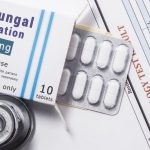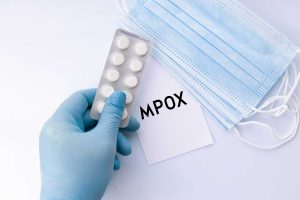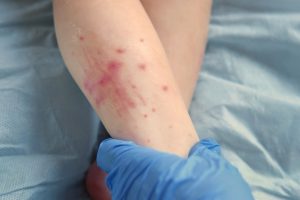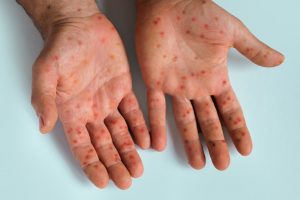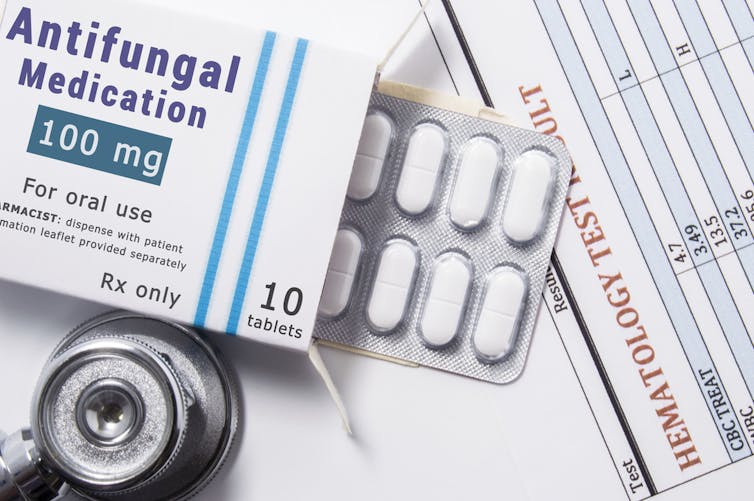
Shutterstock
Nelesh P. Govender, National Institute for Communicable Diseases
When most healthy people think of fungal diseases, they often think of oral or vaginal thrush, nappy rash, fungal nail infections, and athlete’s foot. Although these are very common, annoying and sometimes debilitating conditions, they can be treated.
But some fungal diseases can be extremely serious and, particularly for those with compromised immune systems, even life-threatening. People living with HIV; cancer patients; people who are admitted to hospital; people who are critically ill after trauma or surgery; and premature babies are among those most at risk.
The advocacy group Global Action Fund for Fungal Infections estimates that fungal diseases cause between 1.5 million and 2 million deaths every year. Many of these occur among people with AIDS or among those who develop fungal sepsis in hospital.
Anti-fungal resistance is also a problem. People with serious infections caused by fungi that are resistant to the first-line or even second-line of anti-fungal treatment have a greater chance of dying than those infected by fungi that are susceptible. Over the last 10 years, a multi-drug resistant fungus called Candida auris has spread across the world and caused large outbreaks in hospitals. In South Africa, cases of Candida auris have been diagnosed at almost 100 hospitals.
One of the biggest concerns around life-threatening fungal diseases is that they cause a largely silent epidemic. These diseases are usually diagnosed among sick people, so healthy people are not always aware of these infections unless they or their close relatives become ill. Another concern is that doctors may not consider fungal diseases when they see ill patients.
For example, researchers have recently found that invasive aspergillosis affects almost one in five people with severe influenza admitted to intensive care units. This deadly fungal infection usually affects the lungs of people being treated for cancer. It’s the most common missed infectious cause of death in intensive care.
Some fungal diseases are very difficult to diagnose because the available laboratory tests don’t pick up all true cases of disease, laboratory tests are not available or because fungal diseases can be mistaken for tuberculosis.
Global efforts to control fungal diseases
But health authorities across the world are starting to pay closer attention to life-threatening fungal diseases. For instance, the World Health Organization has recently decided to monitor anti-fungal resistance using its global surveillance system. In 2018, it issued new guidelines to prevent and manage cryptococcal meningitis.
Few African countries have a comprehensive approach to reducing deaths or disabilities caused by fungal infections. In South Africa, there are several measures to deal with life-threatening fungal diseases. The department of health provides guidance to health care workers on how to diagnose and treat people living with HIV who have serious fungal diseases.
The country’s National Institute for Communicable Diseases monitors trends in certain serious fungal diseases and provides technical assistance to investigate and respond to outbreaks. This involves conducting field investigations to confirm an outbreak, as well as collecting samples from patients and the environment for laboratory testing.
South Africa’s Essential Medicines List also recognises the severity of these diseases – it includes important medicines needed for treatment of fungal infections in communities and hospitals. But some life-saving anti-fungal medicines are still not available for treatment because they are not registered by the South African Health Products Regulatory Authority or are too costly.
The National Health Laboratory Service automatically screens people with HIV who have a CD4 count <100 cells/mcl for cryptococcal antigen. A CD4 count measures the strength of the immune system. The lower the count, the weaker the immune system.
Cryptococcal antigen is a part of the fungus that appears in the blood with disease. People whose blood screens positive for cryptococcal antigen are considered to have active cryptococcal disease. They are then offered immediate antifungal treatment, even if they do not feel ill.
My colleagues and I at the National Institute for Communicable Diseases are trying to work out if this national cryptococcal antigen screen-and-treat programme has reduced deaths from cryptococcal meningitis. While a similar approach reduced deaths by almost 30% in a clinical trial, it’s important to confirm the same impact when the intervention is implemented in routine care.
To combat serious fungal infections, researchers at various institutions are also testing vaccines, new anti-fungal medicines or combinations of medicines in clinical trials.
All of this will hopefully lead to more people being diagnosed and treated earlier so that they have a better chance of recovery. But it’s not just up to researchers and health authorities to curb the epidemic. Ordinary people can also play a part.
Preventing and treating fungal disease
Most day-to-day exposures to fungi that can make you sick cannot be avoided. That’s because fungi are everywhere in the environment and some are also found on your skin and in your gut as part of your healthy flora.
But you can try to avoid high-risk exposures if you know that you have a weakened immune system. For example, healthy people who come into contact with soil where there are bat or bird droppings (when exploring caves, cleaning chicken coops or renovating old buildings) can develop a mild flu-like illness called acute pulmonary histoplasmosis. This can get better with, or sometimes without, anti-fungal treatment.
But people with weakened immune systems who are exposed to the same risks can develop a life-threatening form of this disease which is very difficult to treat.
If you are diagnosed with a serious fungal disease, ask for its name so that if you get ill again, you can tell your doctor about this. Take your medication as prescribed and finish the course. If you’re admitted to hospital and have a urine catheter or a drip in place, ask every day if you still need the catheter or drip. Removing urine catheters and drips reduces your risk of developing an infection in hospital.
Finally, people should advocate for hospitals to openly publish their rates of health care associated infections, including fungal infections. This will help in making informed decisions.![]()
Nelesh P. Govender, Head: Centre for Healthcare-Associated Infections, Antimicrobial Resistance and Mycoses, NICD, National Institute for Communicable Diseases
This article is republished from The Conversation under a Creative Commons license. Read the original article.

